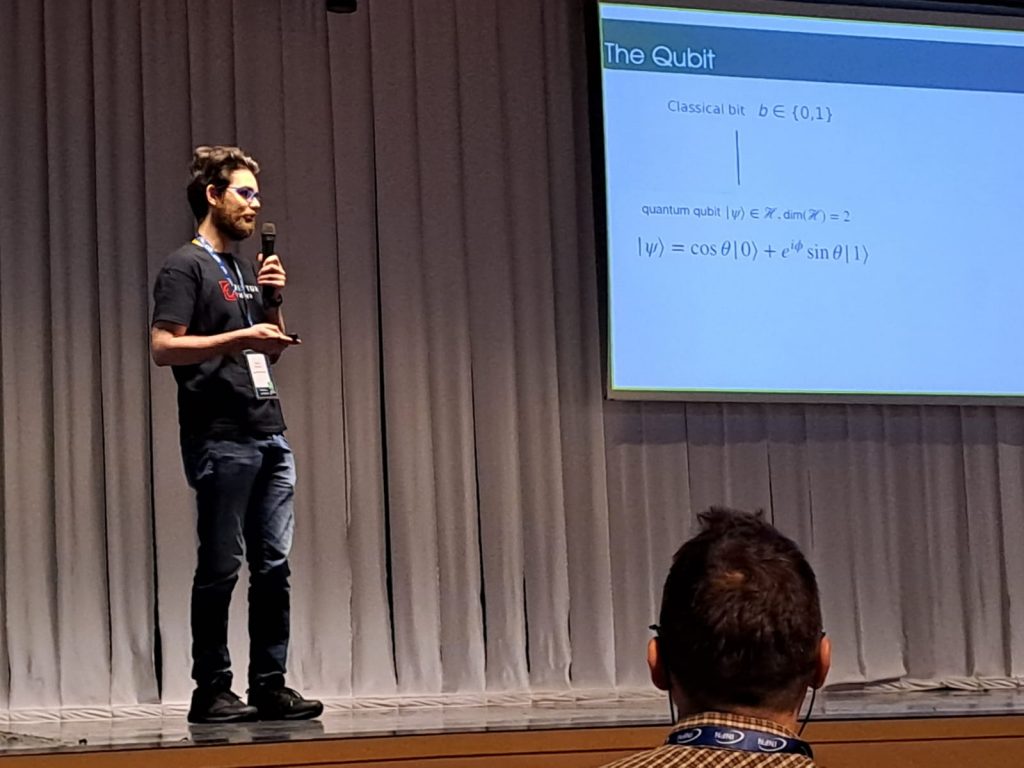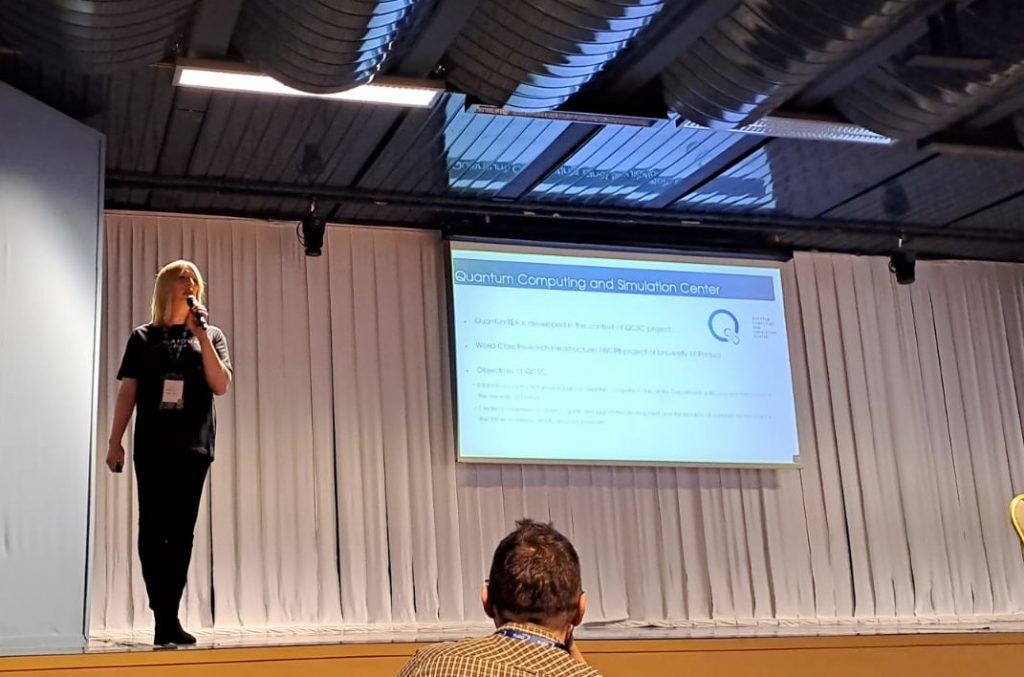

Shots taken during the Marco Ballarin and Lisa Zangrando’s talk at Workshop sul Calcolo nell’INFN.
Although quantum computers have the potential to outperform the classical computer capabilities, at the current moment noise in quantum gates still limits the size of quantum circuits that can be reliably executed. One way to avoid the noise obstacle and improve the circuit reliability includes adopting the classical computer emulators that closely mimic the behavior of quantum hardware. However, the memory required to store a quantum state scales exponentially with the number of qubits, and thus the exact representation of quantum objects is vastly limited by the large amount of computational resources needed. In the context of the Quantum Computing and Simulation Center (QCSC) project, we present the QuantumTEA (Quantum Tensor-network Emulator Applications) software. Exploiting the tensor network framework and efficient quantum state compression techniques, QuantumTEA emulator enables us to reduce the memory scaling from exponential to polynomial with system size and simulate large quantum systems with bounded entanglement. The emulator is being developed as an HPC-ready code available to be run on CINECA’s HPC platforms. Finally, we present the QuantumTEA Cloud Platform, a prototype based on Kubernetes that provides our emulator as a cloud service on CloudVeneto.


Quantum Information and Matter © 2023 University of Padova – All rights reserved
P.I. 00742430283 | C.F. 80006480281 | Accessibility | Privacy Policy